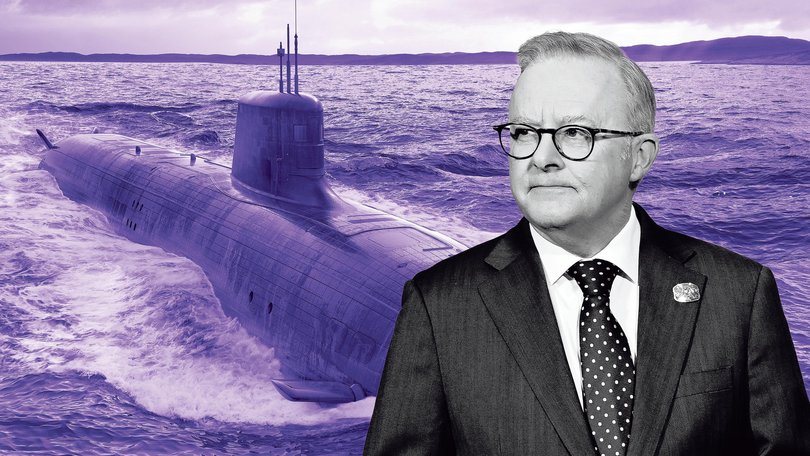EDITORIAL: Australia’s security depends on solid US alliance

On one level, the Albanese Government’s resistance to demands from the United States that Australia dramatically boost its defence spending to 3.5 per cent of economic output is understandable.
No one enjoys being lectured to, least of all by a foreign power.
Anthony Albanese has so far stuck to his guns, saying Australia’s military budget will be determined by need, rather than by an externally imposed, arbitrary number with no plan attached.
Sign up to The Nightly's newsletters.
Get the first look at the digital newspaper, curated daily stories and breaking headlines delivered to your inbox.
By continuing you agree to our Terms and Privacy Policy.But at the moment, the Americans have us pegged as security bludgers and the immediate need is to reverse that perception or risk being left out in the cold.
The reality is that the US — Australia’s most important defence ally for the past century — is giving us the brush off.
If Mr Albanese believes he can afford to draw the Americans’ ire through continued defiance without repercussion, he is living in fantasy land.
The rest of us here on planet Earth understand the reality that Australia’s security depends on a rock solid alliance with the US.
And the same applies to other Western nations, a fact acknowledge by NATO leaders this week with all member nations — bar recalcitrant socialists Spain — agreeing to devote 5 per cent of GDP to defence spending.
NATO’s acquiescence will add to the pressure being piled on Australia to spend more in order to normalise relations with the US, and better defend our interests.
Presently, Australia devotes about 2 per cent of GDP to its military budget, with an aim to increase that to 2.3 per cent by 2034.
The Americans would have us bump that up further, to 3.5 per cent.
It’s possible there’s some space for creative accounting in that figure. Only 3.5 of the 5 per cent agreed to by NATO nations must go towards core defence capabilities. The remainder can go on vaguely defined infrastructure which leaves wiggle room to have upgrades to roads, bridges, airfields or even cyber security infrastructure included as “defence spending”.
In the Netherlands for the NATO summit, Defence Minister Richard Marles left the door open to boosting spending, saying Australia would “continue to assess what our needs are” while noting that Europe’s defence bump was “fundamentally a matter for NATO”.
“We’ve gone through our own process of assessing our strategic landscape, assessing the threats that exist there, and the kind of defence force we need to build in order to meet those threats, to meet the strategic moment, and then to resource that,” Mr Marles said.
“And what that has seen is the biggest peacetime increase in Australian defence spending that we have seen in our history.”
The NATO example shows it is possible to find a way forward in negotiations with Donald Trump.
Yet Australia continues to flounder on both defence and foreign policy.
As much as they may like to, our leaders can’t afford to bury their heads in the sand. Mr Trump’s presidency can’t be regarded as a four-year blip to be endured, but must be acknowledged as the reality within which Australia must exist.
